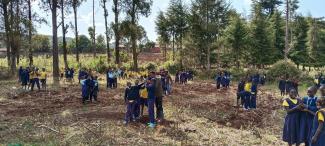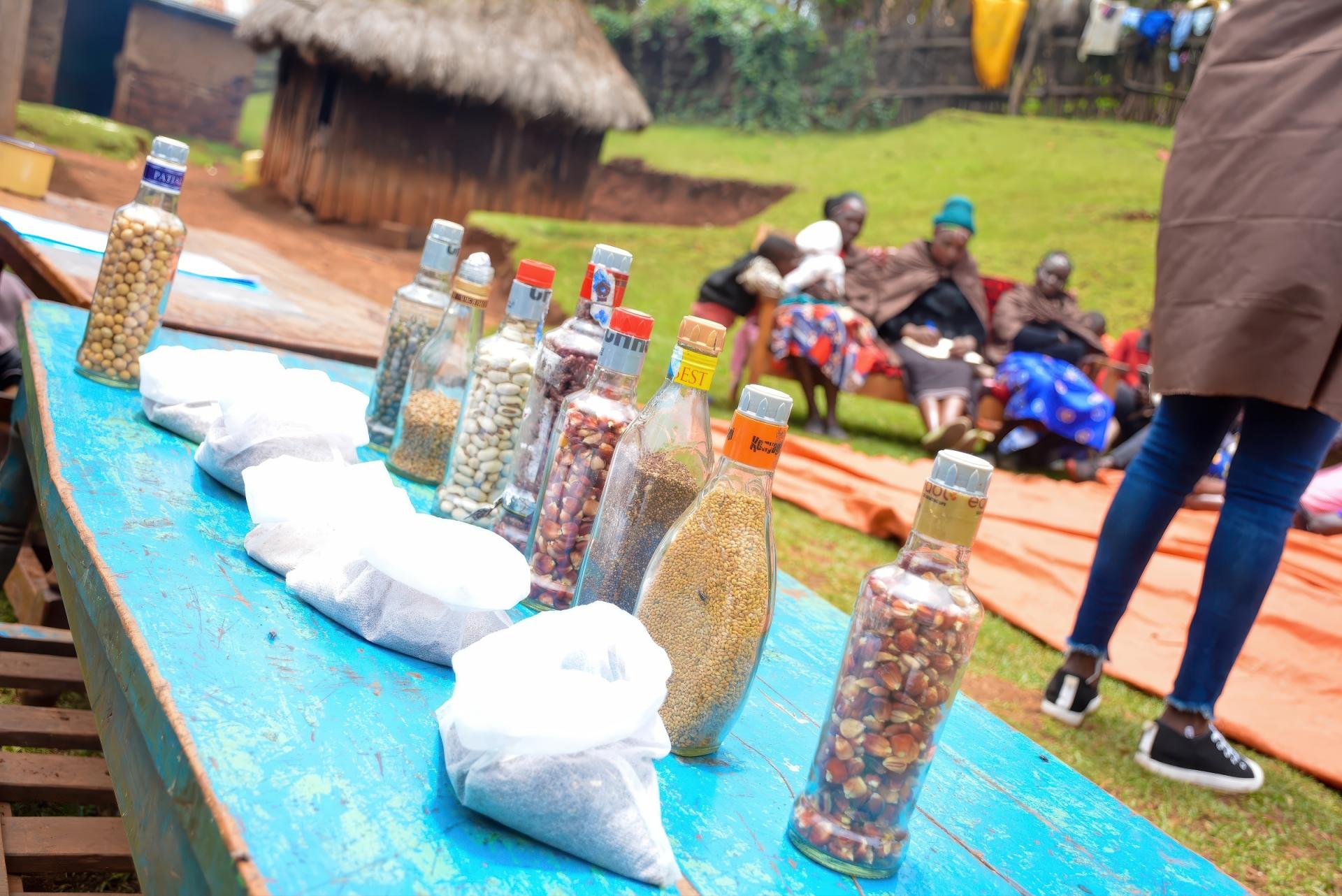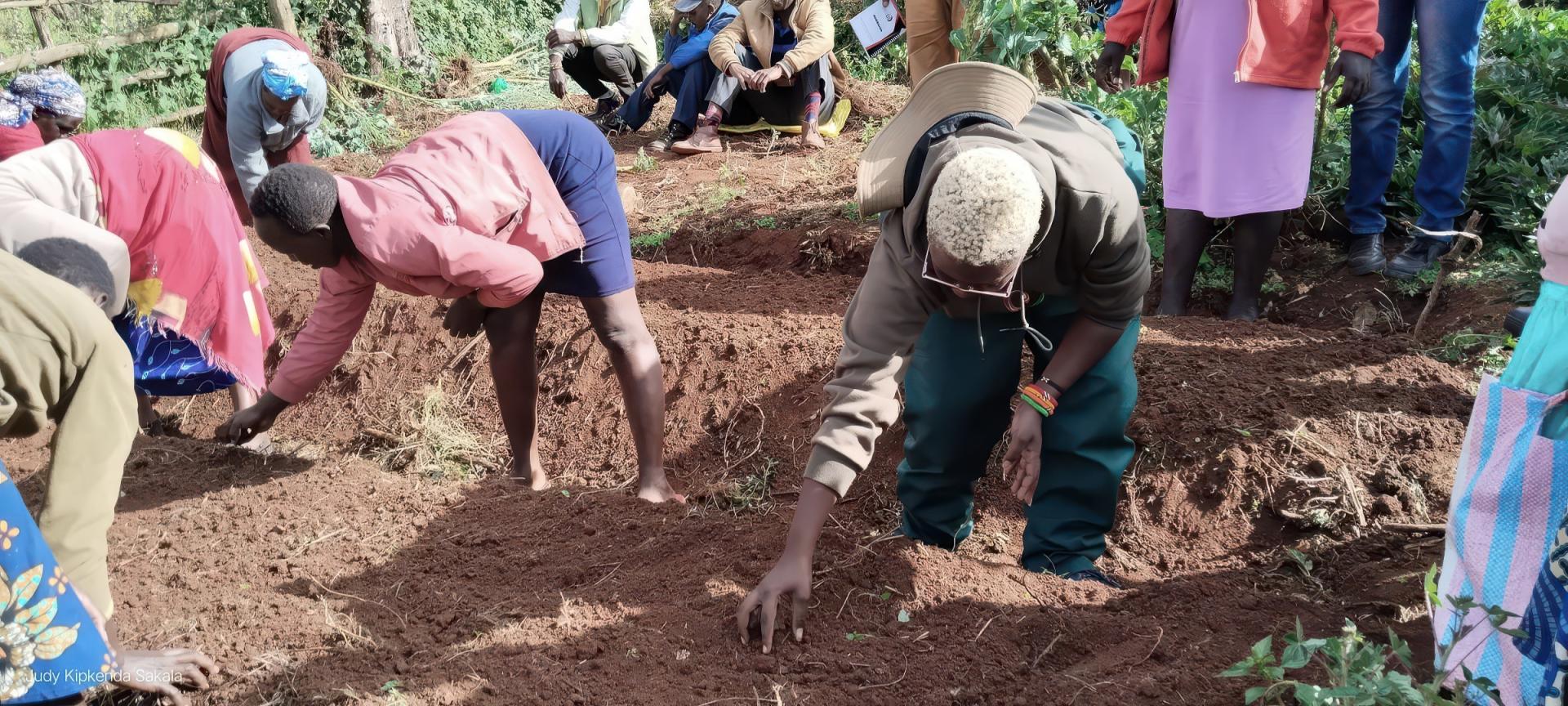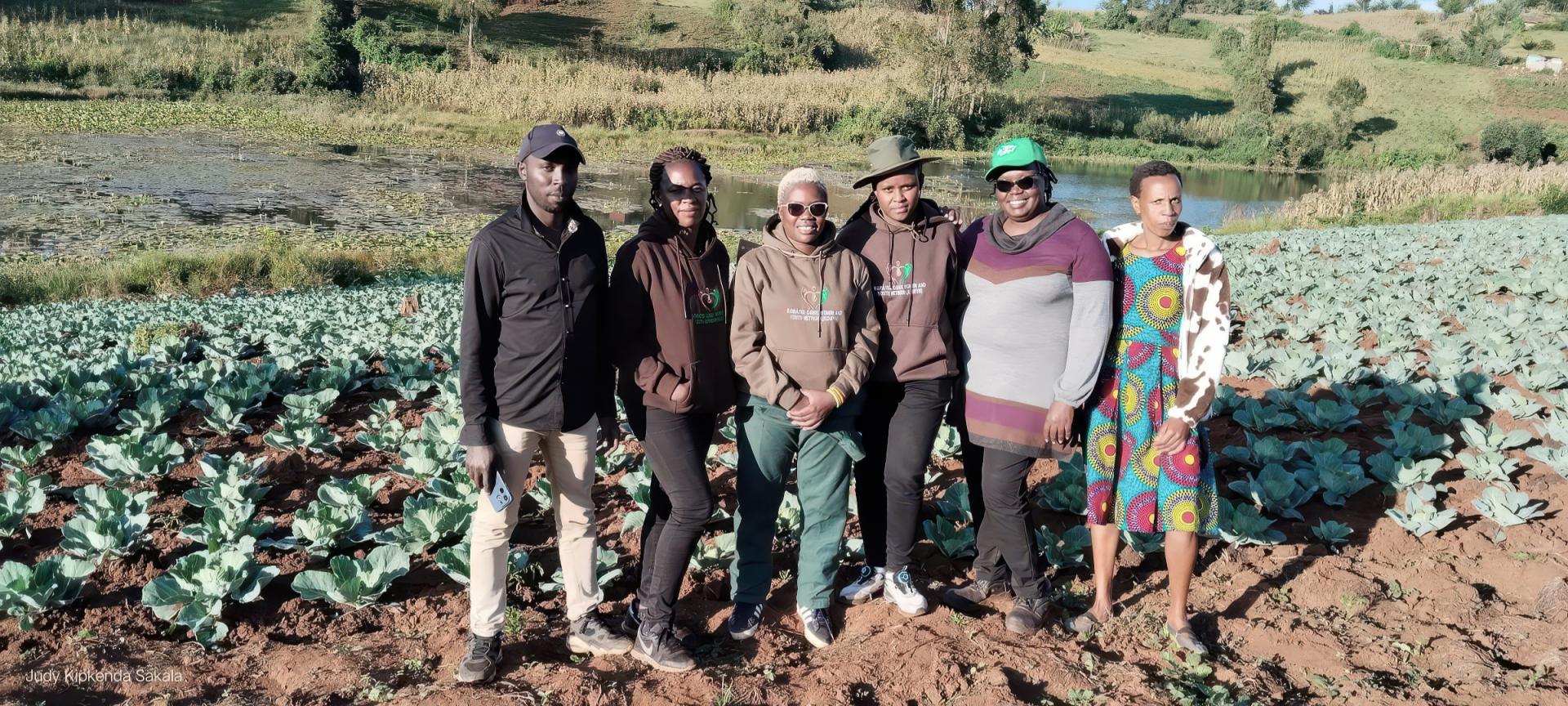
By Nataly Domicó (CS Consultant)
The Ogiek Peoples in Kenya have historically inhabited the Mau Forest Complex, the largest forest in East Africa, which constitutes not only their ancestral home but also a vital source of sustenance and spirituality. However, in recent decades, the Ogiek have faced numerous challenges that threaten both their territory and their traditional way of life. The systematic loss of their ancestral lands and the denial of their right to self-determination have profoundly weakened their cultural, social, and spiritual practices. This situation has jeopardized the intergenerational transmission of knowledge, especially related to environmental conservation and food sovereignty.
In recent years, the plight of the Ogiek People has begun to receive international attention. A major turning point was the historic ruling by the African Court on Human and Peoples’ Rights in favor of the Ogiek, which declared their forced eviction from the Mau Forest unlawful. This decision recognized the fundamental role that Indigenous Peoples play as custodians of local ecosystems and reaffirmed the need to respect their territorial and cultural rights.
Despite many obstacles, the Ogiek have developed community-based strategies to address these adversities, focusing especially on revitalizing their autonomy and cultural practices. Ogiek women have played a central and transformative role in this process, leading actions focused on protecting, recovering, and transmitting ancestral knowledge related to food, land, and biodiversity.
An example of these efforts is the “Seeds of Change: Enhancing Climate Resilience and Adaptation for the Ogiek Indigenous Peoples” project, an initiative of the Koibatek Ogiek Women and Youth Network (KOWYN) supported by Cultural Survival’s Keepers of the Earth Fund program. This project has successfully materialized a deeply rooted community approach, merging Indigenous Traditional Knowledge with practical, sustainable solutions adapted to a local context.
As part of this initiative, KOWYN carried out significant activities at the Seguton and Sabatia primary schools, planting more than 500 fruit trees. These trees, in addition to serving as living symbols of resilience and hope, transformed empty school grounds into future food forests. Their production will contribute to school feeding programs and serve as a teaching tool to promote environmental education among children and youth. Work was also strengthened with various Ogiek women’s groups, including Poror, Kwomberiet, Tabut Visoi, and Tachasis. With their active participation, family gardens incorporating composting systems were established, significantly improving nutrition, food security, and household self-sufficiency.

“We have always known how to grow our food, but we were losing that knowledge. Now, with the seed bank and the trainings, I feel like we are reclaiming what was ours. I plant knowing that these seeds are ours to protect,” says Rebecca Chelangat, a member of the Tachasis women’s group.
The training offered within the KOWYN project provided practical tools in organic farming, composting, intercropping, and traditional seed conservation. This led to the creation of four demonstration gardens and the production of more than 100 seedlings that were subsequently planted in Ogiek homes. In addition, a systematic process of documenting local indigenous seeds was initiated to establish a community seed bank. These actions strengthen food security and family health, while also revitalizing ancestral knowledge systems, increasing climate resilience, and empowering women as guardians of the Ogiek People’s food culture and biodiversity.
Native seeds represent the food genetic heritage of Indigenous Peoples. However, one of the colonial strategies —which persists under the current industrial agricultural model—has been precisely to weaken this heritage by encouraging deforestation, promoting monocultures, contaminating soils with agrochemicals, and displacing traditional diets with ultra-processed foods, which seriously affect the health and autonomy of communities. At Cultural Survival, we strongly support initiatives that promote the recovery of native and natural foods, framed within processes of self-determination, territorial autonomy, and cultural revitalization. As stated in a 2024 issue of Semillas Magazine: “Native seeds are the foundation of Peoples’ sovereignty and territorial and food autonomy. Recovering and protecting them safeguards ancestral knowledge, cultural identities, and communities’ livelihoods.”

The KOWYN project reaffirms the relevance of community-based approaches centered on Indigenous knowledge and values. Its implementation has promoted the active participation of Ogiek Elders, women, youth, and children, strengthening their sense of belonging, collective memory, and cultural pride. Through actions such as seed conservation, community agriculture, and sustainable environmental management, the Ogiek People demonstrate that it is possible to resist, heal, and rebuild the community fabric from their own roots.
The valuable experience of the KOWYN project invites us to remember that sustainability and climate resilience are not built solely on modern technologies, but on the recognition and strengthening of ancestral knowledge that has cared for the land for generations. The work they carry out in recovering their seeds, their food, and their autonomy is not only a local strength— it teaches us a lesson about the importance of honoring cultural diversity, protecting biodiversity, and defending the right of Peoples to decide about their territories and their lives.

In a world marked by climate change, the food crisis, and the loss of identity, the process that the Ogiek women have been undertaking invites us to reflect on the way we inhabit the planet and to understand that, in the native seeds they have recovered and safeguarded, hope and the possibility of building a more just future that respects the rights of Indigenous Peoples and their self-determination also germinate.
In 2024, the Koibatek Ogiek Women and Youth Network received a Keepers of the Earth Fund (KOEF) grant to support their work. KOEF is an Indigenous-led fund within Cultural Survival designed to support the advocacy and community development projects of Indigenous Peoples. Since 2017, KOEF has supported 440 projects in 42 countries through small grants and a wrap-around approach totaling $2,667,147.
The Keepers of the Earth Fund (KOEF)awards grants of up to $12,000 USD, which go directly to traditional Indigenous communities, collectives, organizations, and governments to support their self-designed development projects based on Indigenous values. Predicated on the United Nations Declaration on the Rights of Indigenous Peoples, Cultural Survival uses a rights-based approach in our grantmaking strategies to support grassroots Indigenous solutions through the equitable distribution of resources to Indigenous communities.
All photos by Koibatek Ogiek Women and Youth Network.
Top photo: Activities conducted by the "Seeds of Change" Project, supported by KOEF.
